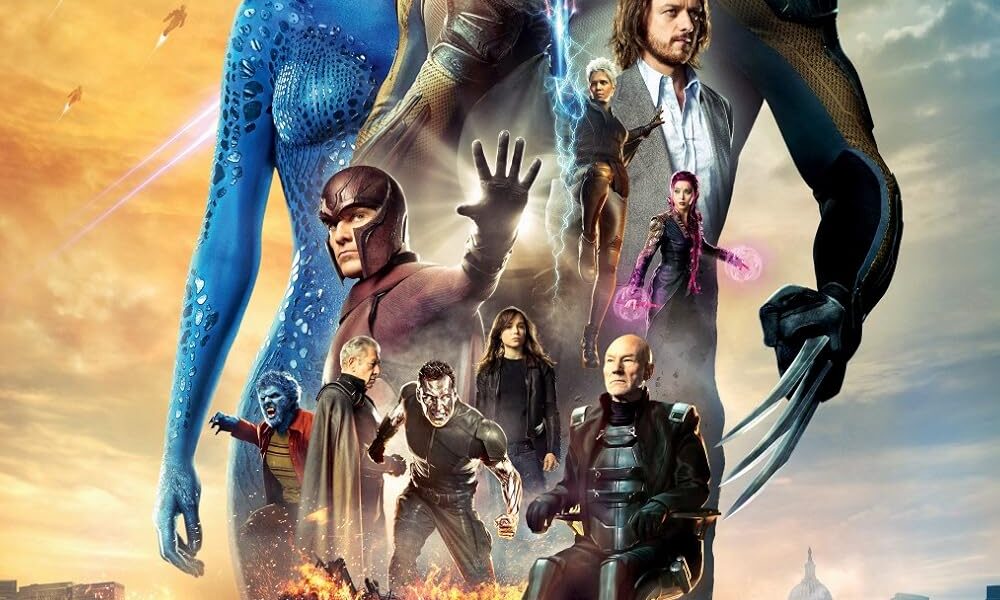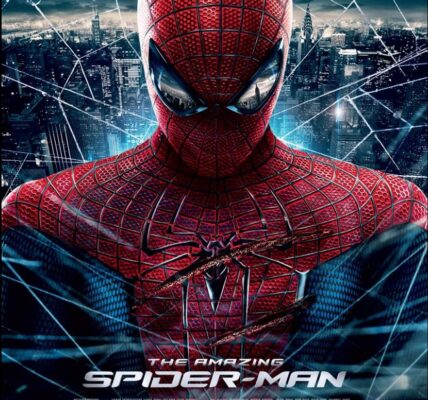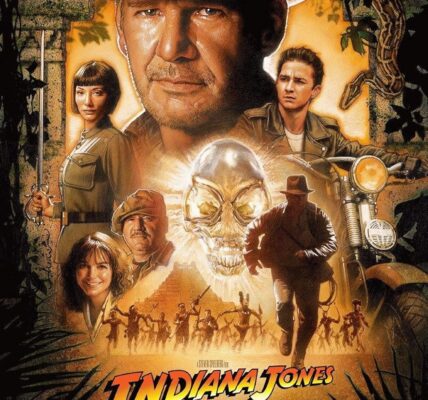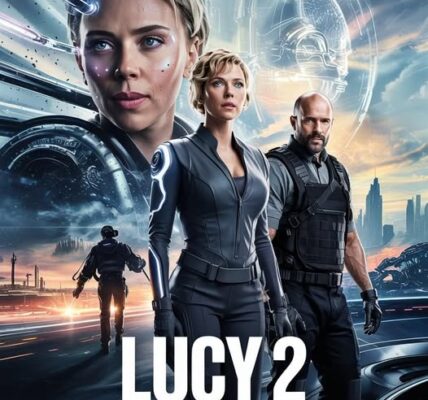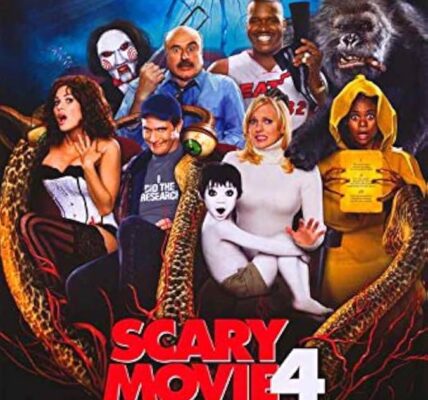Movie Overview
Title: X-Men: Days of Future Past
Release Date: May 23, 2014 (U.S.)
Genre: Superhero / Sci-fi / Action / Time Travel
Director: Bryan Singer
Main Cast: Hugh Jackman (Wolverine / Logan), James McAvoy (young Charles Xavier), Michael Fassbender (young Erik / Magneto), Jennifer Lawrence (Mystique), Patrick Stewart (older Charles), Ian McKellen (older Magneto), Ellen Page (Kitty Pryde), Peter Dinklage (Bolivar Trask), Halle Berry (Storm), etc.
Where to Watch: Available on various digital / streaming platforms (for example, on Disney+ / Hulu in some regions)
- Plot Summary
In a dystopian future, mutants are nearly extinct—sentinel robots relentlessly hunt them down, and those who survive are forced into hiding or death camps. The ruins of mutantkind make a last stand.
The surviving X-Men, including Professor Xavier and Magneto, use the mutant Kitty Pryde’s ability to send someone’s consciousness back in time to try to change history. Wolverine volunteers to be sent into the past (1973), where he must persuade the younger Professor X, Magneto, and Mystique to prevent the assassination of Trask—a pivotal act that would lead to the future’s horrors.
Thus the story balances two timeframes: the bleak future where mutants are being purged, and the past where Wolverine must unite past versions of the characters to prevent catastrophe. It’s a high-stakes mission: alter one key event so as to rewrite the future and save mutantkind.
- Notable Elements
What Makes This Film Stand Out
Ambitious Crossover & Ensemble Cast: Days of Future Past brings together the original X-Men cast and the “First Class” generation. Seeing older and younger versions of Charles Xavier, Magneto, and others interact is a satisfying narrative and nostalgic payoff.
Opening Future Sequence: The bleak, ravaged future sequence with Sentinels attacking is visually striking, efficient in its storytelling, and emotionally powerful in conveying mutant extinction stakes.
Fluid Superpower Action: The film handles powers (telepathy, phasing, magnetism, etc.) in action sequences with more fluidity than many earlier X-Men films. Powers are used in creative, kinetic ways that feel meaningful, not just spectacle.
Character Dynamics & Conflict: The clash between young Charles Xavier (idealism, naivety) and Magneto (more cynical, distrustful) provides emotional weight, especially as their past tensions must be set aside for survival. Mystique’s personal stakes (her identity, choices) anchor the pivotal hinge of the plot.
Temporal Narrative & Stakes: Time travel is used not as a gimmick but as a moral dilemma: changing the past has consequences. The film manages to deliver tension in both its timelines, with consequences that feel earned.
Where It Falters / Weak Spots
Complexity / Too Much On Its Plate: Because the film seeks to fold in multiple arcs, characters, and timelines, some threads feel underdeveloped or rushed. Some critics note that it sometimes loses focus.
Logic & Time Travel Paradoxes: Some elements (e.g. how memory transfer/sending consciousness works, or how timeline changes ripple) are glossed over for pacing, which may irk viewers who demand internal consistency.
Underuse of Supporting Characters: While many characters appear, some don’t get enough screen time to develop fully, making their fates less emotionally resonant.
Tonality / Emotional Balancing: The film shifts between epic action, drama, and emotional confrontation. Occasionally, some scenes feel more like set-pieces than emotional beats, which can lessen impact.
- Themes & Messages
Hope vs Despair: The central tension is whether the future can be redeemed, whether a dire, seemingly inevitable future can be averted by courageous actions in the past.
Unity Across Time / Reconciliation: The film suggests that conflicts between generations (young vs old, idealism vs pragmatism) must be reconciled. The mutant struggle is as much internal (among mutants) as external (versus humans / Sentinels).
Choice & Responsibility: Mystique’s decision to kill (or not) Trask, Wolverine’s burden to act, Xavier and Magneto’s choices—all weigh heavily. The film asks: do individuals carry moral responsibility for broader events?
Sacrifice & Redemption: Many characters have to sacrifice personal comfort, confront regrets, or make hard choices for the greater good.
Legacy & Identity: Because characters exist across timelines, identity and legacy (who we become vs who we were) are contested. The film reimagines past events to shift character fates and narrative legacies.
These themes resonate with ideas about renewal and second chances—concepts often appreciated in reflective or holiday seasons (hope, forgiveness, shaping the future).
- Personal Impressions
Strengths I Loved:
I was impressed by how well the movie disciplines a huge ensemble and keeps the stakes high in both past and future timelines. The opening future scenes set a dark tone that carries emotional weight.
The interplay between older and younger versions of Xavier and Magneto is compelling. Seeing the generational mirror and conflict enriches both sides.
The action sequences are exciting, with inventive uses of powers, especially in future vs past juxtaposition.
Moments of tension, such as Mystique’s internal struggle, or decisions to sacrifice, feel earned, not just theatrics.
What I Liked Less / Critiques:
At times, I felt overwhelmed by the number of threads and characters; some emotional arcs (for supporting mutants) felt truncated.
The time travel explanation isn’t airtight; sometimes convenience seems to drive plot more than consistent rules.
Occasionally the spectacle overshadows emotion; in big battle scenes the human/mutant cost gets somewhat lost.
- Audience Recommendations
This film is ideal for:
Fans of the X-Men franchise who want to see a bridge between old and new casts, and to reconcile storylines.
Viewers who enjoy ensemble super-hero films with depth, time travel, moral stakes, and not just “good vs evil” fights.
Audiences who like speculative sci-fi and drama, not just action — the film rewards thinking and emotional engagement.
People who appreciate movies about redemption, destiny, second chances, and high stakes.
Might be less suited for:
Viewers who prefer straightforward, linear plots or minimal cast—this is dense and multi-layered.
Those who are very sensitive to logic in time travel; if you need every corner explained, you may find holes.
- Conclusions & Rating
X-Men: Days of Future Past is one of the stronger entries in the mutant film saga. It marries spectacle, emotional stakes, nostalgia, and ambition. While it’s not perfect—some arcs are compressed, and the time travel mechanics invite scrutiny—it accomplishes something bold: merging generations, revising lore, and giving hope that even the bleakest futures can change.
Final Recommendation: If you enjoy superhero epics with weight, moral choices, and sweeping scope, this film is well worth your time. It’s a high point in the X-Men film line.
Star Rating: ★★★★☆ (4 out of 5 stars)
